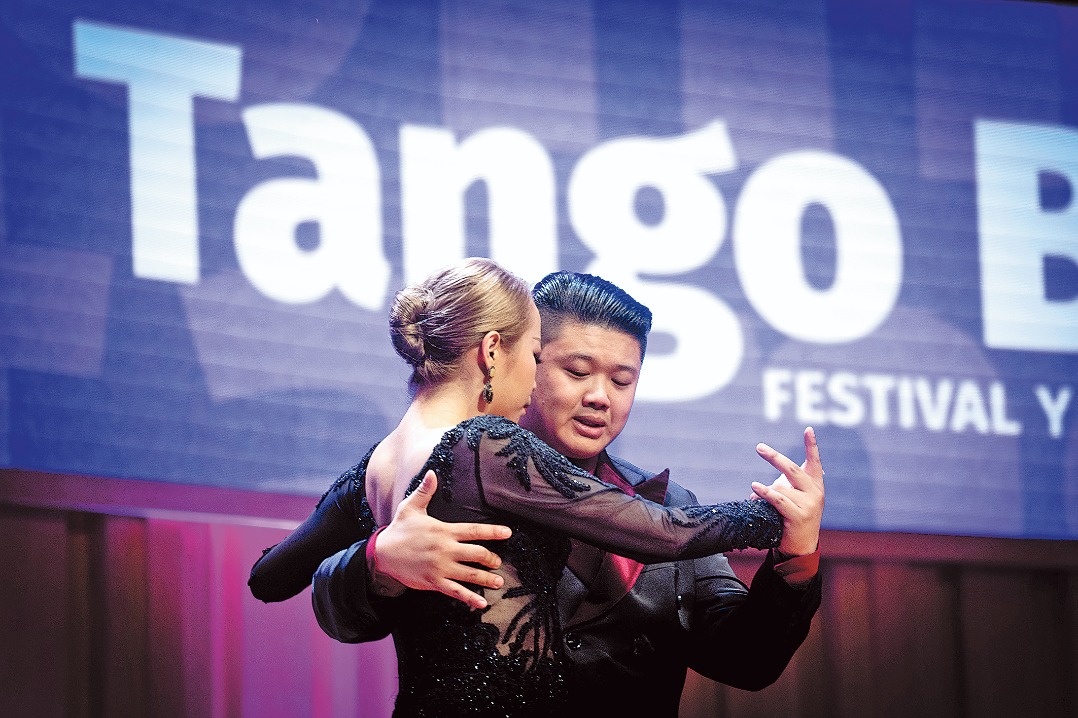Measures offer support for caregivers

East China's Zhejiang province has, over the past year, issued a raft of policies and measures to support those who suffer from mental challenges, with the ultimate mission of realizing comprehensive rehabilitation and helping them to return, and contribute, to society.
The policies, which were jointly issued by the Zhejiang Provincial Health Commission, and five other departments, came into force on Feb 12 and it clarified standards and subsidies for those who care for such patients.
It is stipulated that guardianship and nursing subsidies are offered to specific groups of people.
A guardianship subsidy refers to money given to the guardians of patients with risk assessment levels to effectively perform their responsibilities.
The first group of patients refers to those suffering from serious mental conditions who are clinically diagnosed as schizophrenic, with a schizoaffective disorder, paranoid psychosis, bipolar (affective) disorder, or a mental condition caused by epilepsy, and retardation with a mental disorder. Those who nurse these patients can apply for a subsidy of 150 yuan ($23.7) per person per month.
The second group of patients refers to those with a clinical diagnosis of severe mental disorders (not limited to the above six severe mental disorders) or patients who have had behavior issues caused by accidents. Those who nurse these patients can receive 400 yuan per person per month.
Besides, nursing subsidies refer to the amount given to those who care for patients in extremely poor families, with minimum living allowances, and marginal families under the management of local villages or communities. They can apply for 200 yuan per person per month.
"For patients with mental challenges, what we need to do is not only to control their symptoms with drugs, but more importantly, to help them return to their families and society through scientific rehabilitation," Tang Jianping, director of the Department of Mental Disorder Rehabilitation, Hangzhou Seventh People's Hospital, told a reporter from TheHour, a local news portal of Hangzhou Daily.
According to Shi Jianfei, vice-president of Hangzhou Seventh People's Hospital, mental rehabilitation is a very complicated process. In addition to symptom control, professional rehabilitation in hospitals, family rehabilitation, and social environment rehabilitation are all essential, and even different needs at different times must be considered.
Shi added that patience should be the priority, because mental recovery is a relatively long process and all kinds of factors must be carefully considered, such as a relaxed and warm hospital environment with positive music and colorful entertainment activities.
In Ningbo, a community rehabilitation project for patients with mental challenges was explored and carried out by the Ningbo Center for Mental Disease Control and Prevention, successfully helping many patients to return to society.
Community rehabilitation service is an important way for patients to restore their self-care ability and social adaptation ability, and finally cure the disease and return to society.
"Mental rehabilitation means comprehensive recovery, not only to control pathological symptoms, but also to allow the patients to truly return to society and live like normal people," said a manager with Minkang Hospital in Ningbo, who prefers not to give his name.
Statistics from the Ningbo Mental Health Information Management System showed that by the end of 2020, there were more than 40,000 patients with severe mental disorders registered in Ningbo, which presented burdens to society as well as families.
Since 2019, the Ningbo Municipal Mental Disease Prevention and Control Center has been actively exploring and introducing domestic models, and combining existing experience, to explore community rehabilitation services for patients with severe mental disorders.
In 2019, the hospital selected two subdistricts in Fenghua district in Ningbo and Cixi city for pilot projects, and established several "companion homes" to train recovered patients with severe mental issues. With the help of social workers and patients' families, they lead other patients to regularly organize group rehabilitation activities.
So far, the project has covered 57 streets and townships in Ningbo, with 917 patients involved and 146 recovered patients trained.
Since the implementation of the rehabilitation project over several years, it has achieved obvious results. On the one hand, it can effectively reduce relapses and reduce the medical expenses of treatment. On the other hand, it can also improve patients' self-esteem and improve their family life.
The program also helps people with mental disorders improve their interpersonal skills and helps them reintegrate into society.
By the end of 2020, 44.94 percent of the patients had participated in work and returned to society.
Luo Mingjin, a physician at the Seventh People's Hospital of Hangzhou, believes that the difficulty of the patients' recovery is not in the hospital, but in the follow-up treatment. Patients with mental challenges need social support and guidance, gradually adapting to social life.
In addition, the project has built a community mental rehabilitation platform, established a social support system for patients, reduced the care burden of patients' families and improved the mental health service in the grassroots communities.
Fang Xiaoying contributed to this story.





































